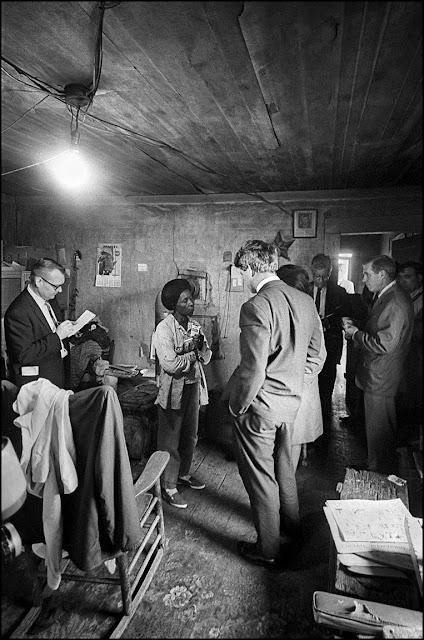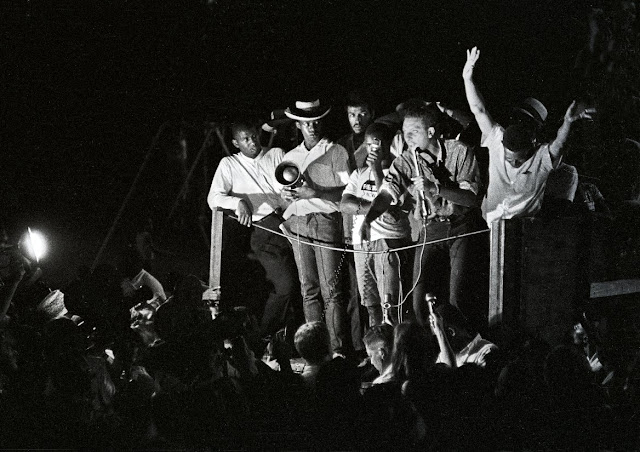CLEVELAND, Mississippi -- Sen. Robert F. Kennedy, D-N.Y., trekking through poverty pockets in rural Mississippi, said Tuesday the United States spends $3 billion annually caring for its dogs and "we could do more for children." Standing at the rear of a weather-beaten, wooden frame house near this community in the cotton-growing Delta, the senator said: "We spend about $3 billion each year on dogs. You'd think we could do more for children. I think that it is our responsibility as American citizens." Negroes in this area are increasingly being idled by the replacement of hand labor with mechanized farm equipment. ... Sen. Joseph Clark, D-Pa, said the money spent to fight poverty was inadequate but more money in itself won't solve the problem. It will take more skills and community interest to help poor people, he said. His subcommittee has been looking into War on Poverty programs for two days in Mississippi.
CLARKSDALE, Mississippi -- A Senate subcommittee, carrying volumes of testimony and memories of hungry children, returned to Washington today (April 12) after a look at poverty conditions among Negroes in the Mississippi Delta. "We need a reawakening of the social conscience of America," said Sen. Joseph S. Clark, D-Pa., chairman of the subcommittee on employment, manpower and poverty. Both Clark and Sen. Robert F. Kennedy, D-N.Y., spent a long day driving through the low-lying cotton country with stops at several ramshackle Negro homes and anti-poverty centers, interviewing dozens of Negro families. The tour, which ended here late Tuesday, came on the heels of a hearing in Jackson at which several witnesses told of widespread hunger and unemployment among Negro farm workers displaced by mechanization and reduced cotton acreage.
-- News accounts from Associated Press
-- Top photo from Robert F. Kennedy Center for Justice & Human Rights; other photos by Jim Lucas: @
* "Clark and Kennedy Visit the Poor in Mississippi" (New York Times, April 12, 1967): @
* Excerpt from "Robert Kennedy and His Times" (Arthur Schlesinger, 1978): @
* "Bobby Kennedy in Mississippi" (Photos, The Clarion-Ledger, Jackson, Mississippi, 2016): @
* "Robert Kennedy's Transformation Ran Through Mississippi" (Clarion-Ledger, 2016): @
* "Bobby Kennedy chose to see problems first hand" (Bill Minor, 2008): @
* "Mississippi docs helped fight 'war on poverty' " (Minor, 2016): @
* "With RFK in the Delta," (John Carr, 2002): @
* "Delta Ephipany: RFK in Mississippi" (Ellen Meacham, 2017): @
* Interview with Marian Wright Edelman (1988): @
* Interview with Peter Edelman (1974): @
* "Poverty" entry from Robert F. Kennedy Center for Justice & Human Rights: @



















